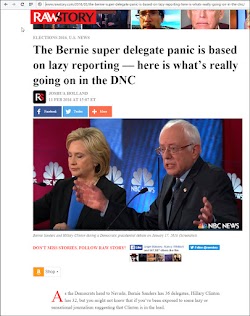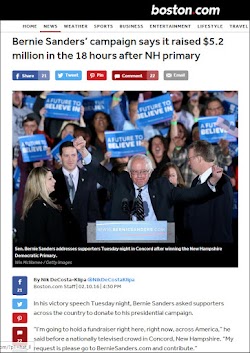 Prior Experience or Better Judgment to be President? A List of US Presidents by Military Service
Prior Experience or Better Judgment to be President? A List of US Presidents by Military Service
(Feb. 12, 2016 02:00 AM EST) Hillary Clinton has been focusing a lot of her debate arguments against Senator Bernie Sanders around the area of foreign affairs experience. More specifically, she has boasted she is more qualified to be president because of the experience she garnished while serving as Secretary of State.
This argument appears flawed. Sure, the presidency does have to tackle issues involving foreign affairs, to include commanding the world’s most powerful military as commander in chief.
In this respect, using Clinton’s logic, and since she did not serve in the military, therefore having no military experience, she is therefore unqualified to be president for lack of military experience.
Fortunately, the quid-pro-quo prior experience or lack there of qualifications logic has not been the determining factor when former presidents have run for, and have been subsequently elected to the presidency.
In fact, the current president, Barack Obama, did not serve in nor had any military experience.
Therefore, Clinton’s argument that failure to have past experience in an area that falls within the responsibility of the presidency, such as foreign affairs, to include commanding the most powerful military in the world, does not hold water.
The presidency is much bigger than the individual holding the position as president. When assuming the office, Presidents will surround themselves with qualified advisors, which he trusts and will seek advice and recommendations from. After which, he then applies his better judgment and wisdom on what decision to make.
Moreover, it is actually the wisdom, judgment, and core values of the individual elected as president which are the higher values and traits that are most determinative when weighing qualification for, or against, holding the position as president of the United States.
It may be that Clinton just doesn’t understand the hierarchy value systems which make up, and determine how a person behaves, think, deal with problems and when making decisions.
People under stand this. Perhaps this is why her credibility has been called into question on any number of issues facing Americans today in areas such as health care, military action and public policy.
Clinton may be a good tactician, however, people want, and have found a more trustworthy candidate in Bernie Sanders. A trend that many polls have proven to be true, especially those who voted in this past New Hampshire primary.
The following list outlines the military service of each president before becoming the commander in chief.
| President | Service | Rank | Active Service |
|---|---|---|---|
| Barack Obama | None | None | None |
| George W. Bush | Texas Air National Guard | First Lieutenant | Stateside service as pilot during Vietnam War (1968–1973) Received early discharge in 1973.[1] |
| Bill Clinton | None | None | None. Signed agreement to join Reserve Officer Training Corps at University of Arkansas during Vietnam War.[2] Subsequently withdrew and entered draft, but received high draft number and was not drafted.[3] (See Bill Clinton: Vietnam War opposition and draft controversy.) |
| George H. W. Bush | United States Naval Reserve | Lieutenant (Junior Grade) | World War II (1942–1945) Distinguished Flying Cross. |
| Ronald Reagan | United States Army Reserve, United States Army Air Corps | Captain | Stateside service during World War II (1942–1945); Army Reserve (1937–1942) |
| Jimmy Carter | United States Navy | Lieutenant | World War II at the United States Naval Academy Sea duty and stateside service 1946–1953 during the Korean War. |
| Gerald Ford | United States Naval Reserve | Lieutenant Commander | World War II (1942–1945); combat on USS Monterey, discharged in 1946. |
| Richard Nixon | United States Naval Reserve | Commander | World War II (1942–1945); Earned two Service Stars. |
| Lyndon B. Johnson | United States Naval Reserve | Commander[4] | World War II received Silver Star medal after observation mission in which aircraft he was on came under Japanese attack. |
| John F. Kennedy | United States Navy | Lieutenant | World War II received Navy and Marine Corps Medal and Purple Heart |
| Dwight D. Eisenhower | United States Army | General of the Army | Stateside service during World War I. Served as Supreme Allied Commander in Europe during World War II (1942–1945). Visited troops in Korea in December 1952. Entire active-duty career spanned from 1915 until 1969 (excepting his two terms as president and Commander-in-Chief). |
| Harry S. Truman[5] | Missouri Army National Guard United States Army, United States Army Reserve |
Colonel | Stateside National Guard service in Missouri (1905–1911); World War I (1917–1918); transferred to Army Reserve and retired in 1953. |
| Franklin D. Roosevelt | None | None | None; Assistant Secretary of the Navy in World War I. Attempted to resign in order to enter uniformed service, but resignation not accepted. Visited France as part of Navy Department duties to observe military activities first hand. |
| Herbert Hoover | None | None | None; helped guide US Marines in 1900 during the Boxer Rebellion. |
| Calvin Coolidge | None | None | None |
| Warren G. Harding | None | None | None |
| Woodrow Wilson | None | None | None |
| William Howard Taft | Connecticut Home Guard | None | None; United States Secretary of War 1904–1908. Enlisted in Connecticut Home Guard for World War I. |
| Theodore Roosevelt | United States Army | Colonel | Spanish–American War – only U.S. President to receive the Medal of Honor (awarded posthumously in 2001). Also a Navy Civilian, as Assistant Secretary of the Navy[6] |
| William McKinley | United States Army | Brevet Major | American Civil War. Served in the 23rd Ohio Infantry under future President Rutherford B. Hayes; fought in the Battle of South Mountain, The Battle of Antietam, and in the Valley Campaigns of 1864. |
| Benjamin Harrison | United States Army | Brigadier General | American Civil War; Commanded an Infantry Brigade at the battles of Resaca, New Hope Church, Kennesaw Mountain, Marietta, Peachtree Creek and Atlanta; also Commanded a Brigade during Sherman’s March to the Sea. |
| Grover Cleveland | None | None | Paid George Benninsky $150 to take his place after Cleveland was drafted during Civil War under Conscription Act of 1863. |
| Chester A. Arthur | New York State Militia | Brigadier General | Judge Advocate General, Second Brigade of the New York Militia. Served as Engineer-in-Chief on the Governor’s staff, Quartermaster General and Inspector General of the New York Militia before and during the American Civil War. Declined appointment as commander of the 9th New York Volunteer Infantry Regiment and command of four New York City regiments organized as the Metropolitan Brigade when Governor requested he remain Quartermaster General. |
| James Garfield | United States Army | Major General | American Civil War (1861–1863; commanded an Ohio Infantry Brigade at the Battles of Shiloh and Corinth; served as Chief of Staff for General William Rosecrans at the Battle of Chickamauga; left the army to serve in the United States House of Representatives). |
| Rutherford B. Hayes | United States Army | Major General | American Civil War. Served in the 23rd Ohio Infantry and commanded future President William McKinley; wounded at the Battle of South Mountain; also served at the Battle of Antietam and in the Valley Campaigns of 1864. |
| Ulysses S. Grant | United States Army | General of the Army | Mexican–American War and American Civil War; served 1843–54 and 1861–68. |
| Andrew Johnson | United States Army | Brigadier General | Served in Tennessee Militia in 1830s. American Civil War; served as Military Governor of Tennessee in 1862. |
| Abraham Lincoln | Illinois State Militia | Captain | Black Hawk War (served three months in 1832); see Abraham Lincoln in the Black Hawk War. |
| James Buchanan | Pennsylvania State Militia | Private | War of 1812 |
| Franklin Pierce | United States Army | Brigadier General | New Hampshire Militia, 1831–46; Mexican–American War; commanded Infantry Brigade at Battle of Contreras (where his leg was injured), Battle of Churubusco, and the Assault on Mexico City. |
| Millard Fillmore | New York State Militia | Major | Served in New York Militia in 1820s and 1830s; Organized Union Continentals home guard unit in Buffalo, New York during American Civil War |
| Zachary Taylor | United States Army | Major General | War of 1812, Black Hawk War, Second Seminole War, Mexican–American War; entire career spanned from 1808 until 1848. |
| James K. Polk | Tennessee State Militia | Colonel | Joined cavalry unit in Tennessee Militia as a Captain. Subsequently appointed a Colonel on the staff of Governor William Carroll. Did not see war service. |
| John Tyler | Virginia militia | Captain | War of 1812 |
| William Henry Harrison | United States Army | Major General | Northwest Indian War, War of 1812 |
| Martin Van Buren | None | None | None; as State Senator during War of 1812 worked to pass war measures, including bills to expand New York militia and increase soldier pay. Special Judge Advocate appointed to aid in prosecuting William Hull at Hull’s court-martial after surrender of Detroit. |
| Andrew Jackson | Tennessee State Militia, United States Army | Major General | American Revolutionary War, War of 1812, Creek War, First Seminole War |
| John Quincy Adams | None | None | None; however he was a witness to Battle of Bunker Hill in 1775 and reportedly was a non-participant in a Naval Battle between a British ship and a US ship he was on with his father during the American Revolution. |
| James Monroe | Continental Army | Major | American Revolutionary War; wounded at the Battle of Trenton; depicted holding the American flag behind General George Washington in the famous painting Washington Crossing the Delaware. |
| James Madison | Virginia militia | Colonel | American Revolutionary War, did not see action. |
| Thomas Jefferson | Virginia militia | Colonel | Commander of Albemarle County Militia at start of American Revolution, did not see action |
| John Adams | None | None | Adams served as chairman of the Continental Congress’s Board of War (1776–77), making him the simultaneous equivalent of today’s Secretary of Defense and Chairman of Senate Armed Services Committee; was a semi-participant in a naval engagement between a British and US ship during the American Revolution. |
| George Washington | Virginia militia, Virginia Regiment, Continental Army, United States Army | General of the Armies | French and Indian War, American Revolutionary War. |
| President | Service | Rank | Active Service |
Source: Wikipedia (Accessed: Feb. 11, 2016 23:00 EST









